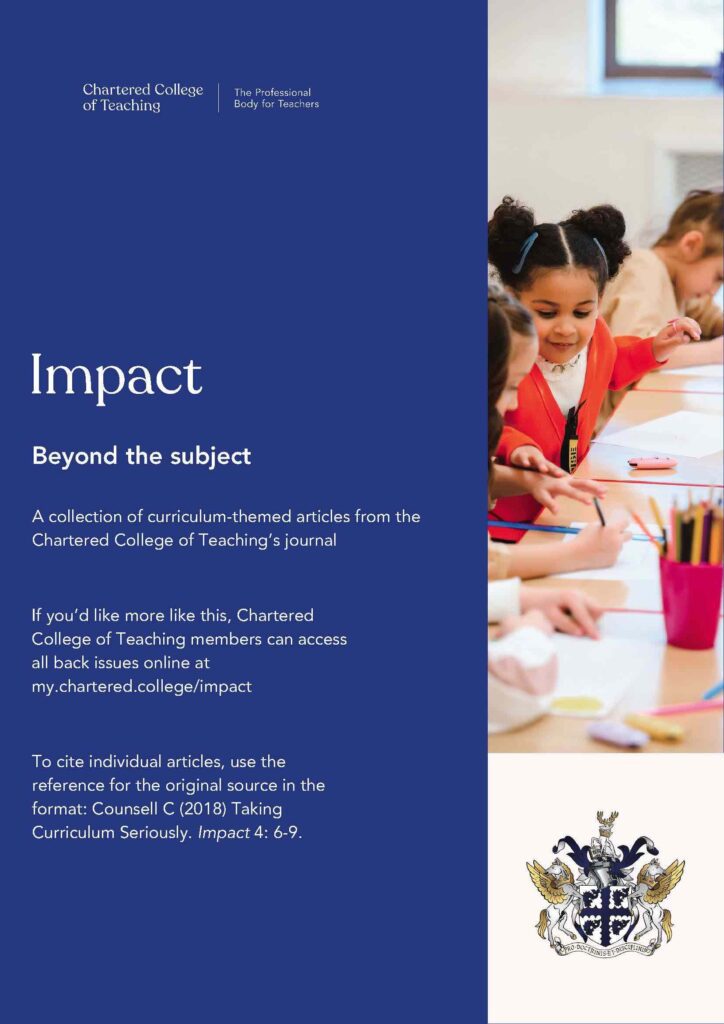
Transcript for ‘Implementing AI strategically in a secondary setting to benefit all learners’ Speakers Emma Darcy, Denbigh High School Ian Stonnell, Denbigh High School The examples of AI use and specific tools in this article/case study are for context only. They do not imply endorsement or recommendation of any particular tool or approach […]

Transcript for ‘Integrating AI into teaching and learning in a secondary setting’ Speaker Emma Whitehall, Challney High School for Girls The examples of AI use and specific tools in this article/case study are for context only. They do not imply endorsement or recommendation of any particular tool or approach by the Department for […]

Transcript for ‘Using AI safely and effectively in all settings’ Speaker Celine-Anne Searle, Springfield Primary School The examples of AI use and specific tools in this article/case study are for context only. They do not imply endorsement or recommendation of any particular tool or approach by the Department for Education or the Chartered […]

Transcript for ‘Using AI to reduce workload in a primary setting’ Speaker Robert Cowie, Lancot Primary School The examples of AI use and specific tools in this article/case study are for context only. They do not imply endorsement or recommendation of any particular tool or approach by the Department for Education or the […]

The TV series ‘Adolescence’ has received a lot of attention on and offline since it first became available to watch. It tells the story of a 13-year-old boy who brutally murders a female classmate and explores important issues including adolescents’ social media use, misogyny and gender stereotypes. Following announcements from the streaming service to make […]

The content within this compact guide has been adapted from content originally produced for MyCollege by Gary Jones and Deborah Netolicky. What is a compact guide? Our compact guides are designed to provide an introduction to a specific topic or theme. The content within each guide includes an overview of core concepts related to the […]

Curricular principles and approaches: A collection of curriculum-themed articles from Impact, the Chartered College of Teaching’s termly journal

Teacher development and leadership: A collection of curriculum-themed articles from Impact, the Chartered College of Teaching’s termly journal

Curriculum design in context: A collection of curriculum-themed articles from Impact, the Chartered College of Teaching’s termly journal

Approaches to assessment: A collection of curriculum-themed articles from Impact, the Chartered College of Teaching’s termly journal

Beyond the subject: A collection of curriculum-themed articles from Impact, the Chartered College of Teaching’s termly journal

Jane Green MBE FCCT, Founder and Chair of SEDSConnective Introduction As a former assistant headteacher who focused on supporting students with special educational needs and disabilities (SEND), I have long been concerned about attendance and attainment among neurodivergent children. The co-occurrence of physical health challenges linked to hypermobility for this population is not well […]

Eight in 10 learners say that technology makes it easier for them to participate at school (Pearson, 2024). Schools that have recently adopted new technology are seeing improved confidence and independence for all students, including those formally identified as having special educational needs and disabilities (SEND). However, across the UK, assistive technology is still a […]

This research summary was produced as part of a project funded by The Comino Foundation. Original research article Connolly V (2023) Less Can Be More: Rethinking The Use Of Time In Schools. The Buckingham Journal of Education 4(1): 73–92. Introduction Policymakers and researchers have repeatedly disregarded teachers’ calls for increased non-contact time, or […]

This research review was produced as part of a project funded by The Comino Foundation. According to the Centre for Research on Play in Education, Development, and Learning (PEDAL) at the University of Cambridge, most students beyond early childhood age do not currently have the opportunity to learn playfully in school. However, evidence suggests […]

This research review was produced as part of a project funded by The Comino Foundation. In many countries including England, Australia and Germany, the secondary school curriculum has traditionally been carved up into subjects delineated by their knowledge, modes of inquiry and discursive practices. In turn, this has implications for the notion of ‘subject […]

This research review was produced as part of a project funded by The Comino Foundation. In Europe, teachers are increasingly expected to take an active role in curriculum design (de Almeida and Viana, 2023), being variously positioned as curriculum developers at the macro, meso and micro-levels. The officially prescribed core or intended curriculum sits […]

This research review was produced as part of a project funded by The Comino Foundation. The transition from primary to secondary school is often regarded as one of the most challenging periods in students’ educational careers (Zeedyk et al. 2003) and can be a particularly difficult and stressful period for some students (Kwarikunda et […]

Lewis A Baker, Faculty of Engineering and Physical Sciences, University of Surrey, UK Introduction The purpose of this article is to justify the engagement in developing a teaching philosophy statement and to scaffold the writing process. For those already familiar with such documents, this article will argue for the value of revisiting a teaching philosophy […]

Introduction Agency, defined by the Cambridge Dictionary as ‘the ability to take action or to choose what action to take’ (n.d.) refers in an educational context to the ability to determine one’s own learning goal and the process of pursuing that goal (Vaughn, 2018). Agency may be used in a moral, social, economic, or creative […]




















